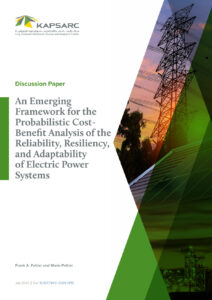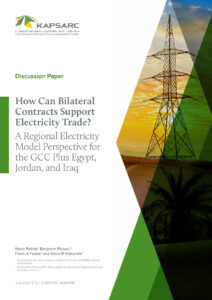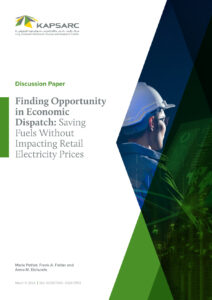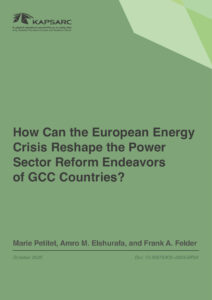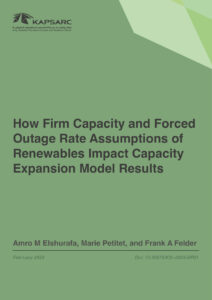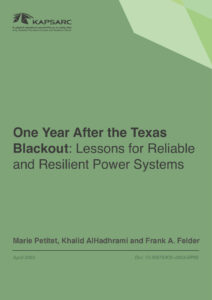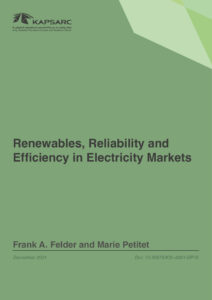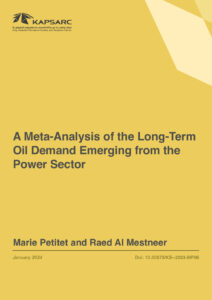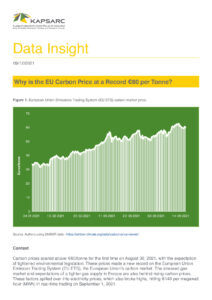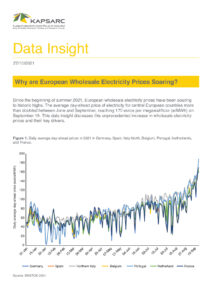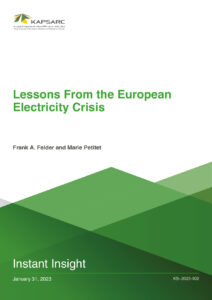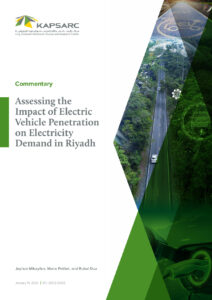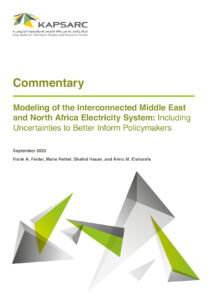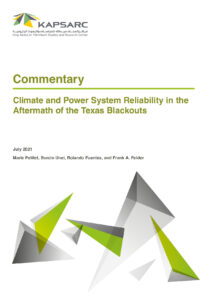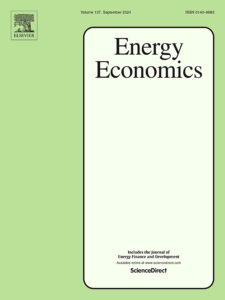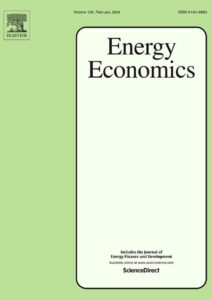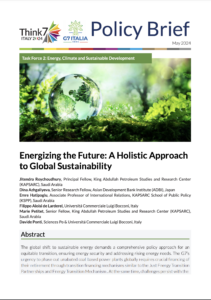Marie is a Senior Fellow in the Utilities & Renewables Department. Since she joined KAPSARC in 2021, her research has focused on power system modeling (KAPSARC Power Model), market designs for energy transitions, and framework analysis for reliable and resilient power systems.
Prior to joining KAPSARC, Marie worked as a Research Engineer within the Research and Development (R&D) unit of the utility group EDF in Paris, France. During her EDF journey, she worked on long-term and short-term electricity market design, the transmission grid at the European scale, and smart-charging opportunities for electric vehicles. Marie also worked as a researcher within the Market Department of the French Transmission System Operator RTE.
Marie holds a Ph.D. in Economics from Dauphine University, PSL (France), an M.Sc. in Environmental and Energy Economics from Ecole des Ponts ParisTech (France), and a M.Sc. in Engineering from ENSTA Institut Polytechnique de Paris (France).


